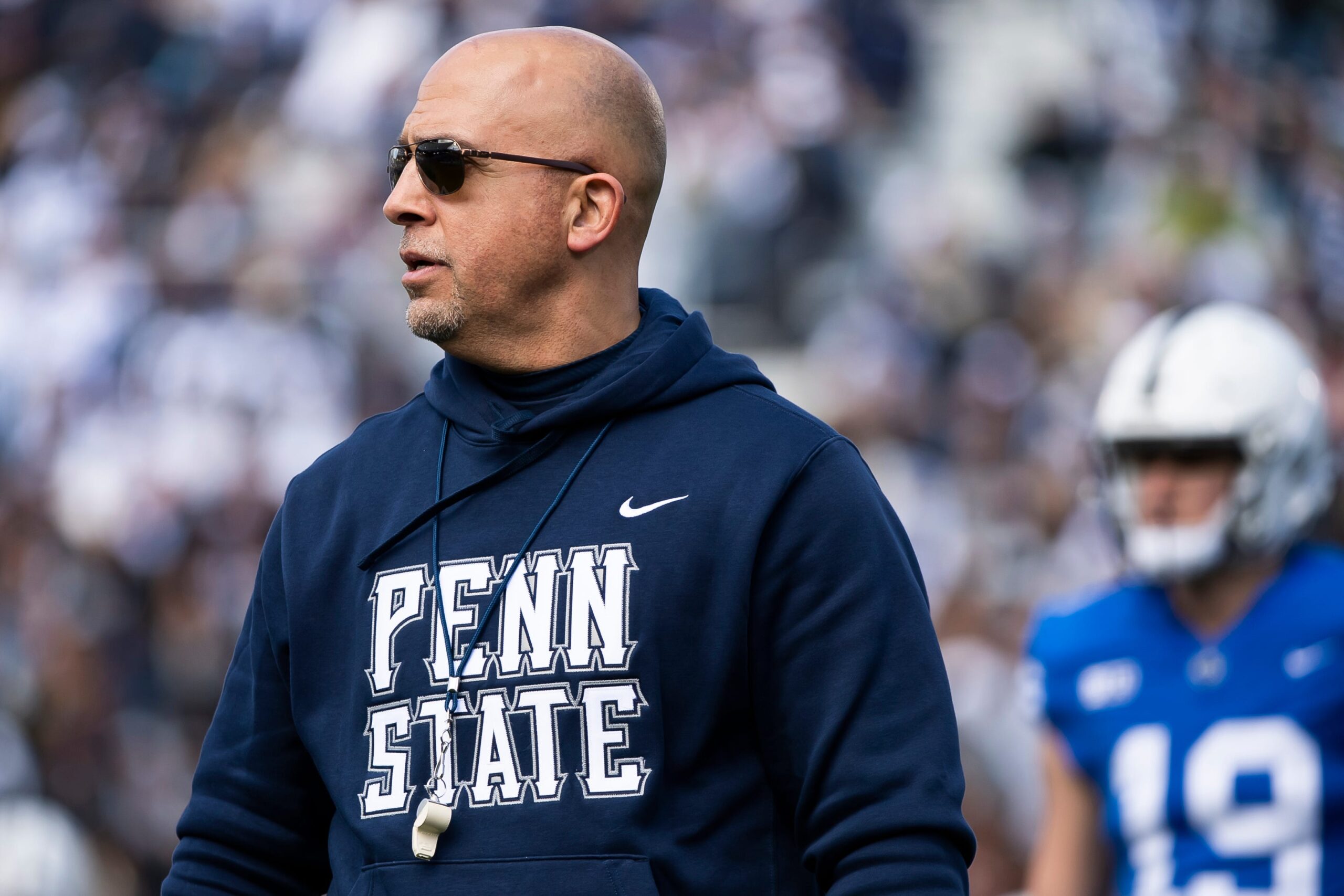A former Penn State football team doctor claimed in court on Tuesday that James Franklin had pressured the Nittany Lions medical staff into disqualifying a player who had attempted suicide. That was just one of the examples used by Dr. Pete Seidenberg in his testimony of Franklin’s multiple attempts to interfere with medical decisions regarding player health. Seidenberg’s testimony is part of an ongoing lawsuit filed by Dr. Scott Lynch, who claims he was fired from his role with Penn State athletics due to his repeated clashes with the Nittany Lions football coach.
Former Penn State football doctor says James Franklin pushed to cut suicidal player, among other medical meddling
Per the reporting of John Luciew of PennLive/TNS Tuesday, Dr. Pete Seidenberg testified in Dauphin County court to multiple instances in which James Franklin had attempted to interfere with the decisions of the Penn State football medical staff. Seidenberg was a physician for the team in the early years of Franklin’s tenure.
In one example, Seidenberg claimed that Franklin and then-athletic director Sandy Barbour pressured him and Dr. Scott Lynch to medically disqualify a player from the team who was receiving short-term psychiatric care after attempting suicide by jumping out a window. Had the request been granted, the unnamed player would have lost his scholarship.
While Dr. Pete Seidenberg was not permitted to repeat direct quotes from James Franklin, he detailed several instances in which he perceived the Nittany Lions coach as attempting to “influence medical decisions.” These included questioning the number of players on the practice injury list, pushing for a star player to be cleared to play, and pressuring the doctors to opt for surgery even after players had chosen more conservative medical approaches.
The defense objected on numerous occasions for hearsay during the testimony. The legal team says there’s no evidence that medical treatment ever changed under pressure from Franklin.
Ongoing trial with ex-team doctor takes bizarre turn
Tuesday’s testimony from Dr. Pete Seidenberg is part of the ongoing lawsuit from Dr. Scott Lynch, who claims that he was fired from his position as Penn State director of athletic medicine and orthopedic consultant to the football team for his clashes with James Franklin.
Officially, Lynch was relieved of his duties in 2019 because he lacked an official residence in State College, and the school claimed a local doctor would better serve the needs of its athletes. Franklin and Penn State athletics were dropped from the lawsuit because of a missed filing deadline, so the case is proceeding against Lynch’s current employer, Penn State Health.
The case took a turn toward the weird on Tuesday morning, as Penn State’s contract with Nike came under scrutiny. Lynch’s lawyers argued that Nike could fine the school for “unauthorized spatting” (ankle taping) that covers the brand’s logo on players’ shoes. This could be viewed as a breach of contract for restricting logo placement.
However, the defense countered with photos of former Penn State football stars Christian Hackenberg and Saquon Barkley showing their ankles taped with the Nike logo still visible on the back of their shoes. Richard Kaluza, Penn State senior associate athletic director for finance and business operations, testified that any spatting by team medical professionals or athletic trainers would be considered authorized.
Dr. Scott Lynch, a National Champion for the Penn State wrestling program in 1984, is seeking compensatory and punitive damages in the lawsuit.
Thank you for reading Basic Blues Nation, the market’s fastest-growing Penn State sports outlet. Please follow us on Facebook and Twitter for the latest news and insights on your favorite Penn State athletics. For feedback, questions, concerns, or to apply for a writing position, please email us at [email protected] or direct message us on our social media. Also, be sure to check out our new site shop. It’s due to your support that we can proudly claim a readership of over 3.5 million in our first year of operation.

 FOOTBALL2 days ago
FOOTBALL2 days ago
 FOOTBALL8 hours ago
FOOTBALL8 hours ago
 FOOTBALL3 days ago
FOOTBALL3 days ago
 FB RECRUITING2 days ago
FB RECRUITING2 days ago
 FOOTBALL1 day ago
FOOTBALL1 day ago
 FOOTBALL1 day ago
FOOTBALL1 day ago
 FOOTBALL1 day ago
FOOTBALL1 day ago
 FB RECRUITING2 days ago
FB RECRUITING2 days ago







